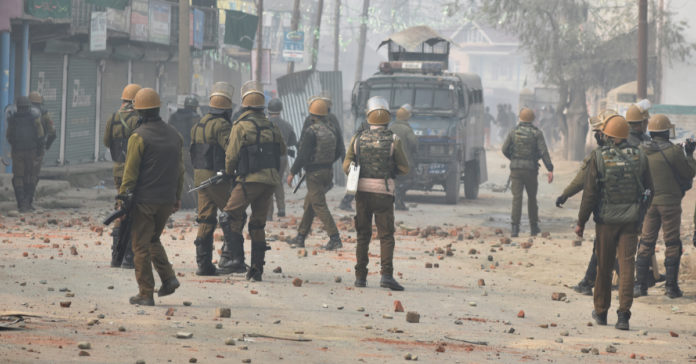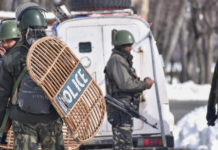China and Saudi Arabia have announced that they will boycott a G20 meeting to be staged in Indian-occupied Kashmir – the first such gathering since India unilaterally brought Kashmir under direct control in August 2019.
Beijing said it would not attend the tourism working meeting, from next Monday to Wednesday, citing its firm opposition “to holding any kind of G20 meetings in disputed territory.”
Saudi Arabia followed suit and Turkey, Egypt and Indonesia are also expected to stay away.
The G20 is an international forum for the governments and central bank governors from 19 countries and the European Union.
The news of the boycott is a blow to Indian authorities who had hoped the meeting would show that their changes have brought peace and prosperity to the region and that it is a safe place for tourists.
The former Jammu and Kashmir chief minister Mehbooba Mufti claimed India had turned the region into the equivalent of the Guantánamo Bay prison simply to hold a meeting on tourism. She also accused the BJP Party of hijacking the G20 for its promotional purposes.
Last week Fernand de Varennes, the UN’s special rapporteur on minority issues, issued a statement saying the G20 was “unwittingly providing a veneer of support to a facade of normalcy” when human rights violations, political persecution and illegal arrests were escalating in Kashmir.
Subscribe to our newsletter and stay updated on the latest news and updates from around the Muslim world!
He said the meeting risked normalising what some have described as a military occupation.
On the other hand, the chief coordinator for India’s G20 presidency, Harsh Vardhan Shringla, said on Sunday: “We have the highest representation from foreign delegations for the tourism working group meeting in Srinagar, than we have had in the previous working group meetings.
“Our experience is that in any working group meeting, to get such a large turnout of delegates not only from G20 countries but also from international organisations that are part of the G20 is an incredible process. If you have to do a working group on tourism in India, we have to do it in Srinagar. There is no option.”
Britain’s High Commissioner to India, Alex Ellis, said UK representatives would be attending the meeting.
In 2019 the Indian government stripped the Muslim-majority region of semi-autonomy and split it into two federal territories in an attempt to integrate it fully into India.
The Kashmir conflict dates back to the partition of India in 1947, which led to the creation of India and Pakistan as separate nations.
At the time of partition, princely states in India were given the choice to accede to either India or Pakistan, considering their geographical and religious affiliations. The ruler of Muslim-majority Kashmir, Maharaja Hari Singh, agreed to accede to India.
This led to the first Indo-Pakistani war over Kashmir, with subsequent conflicts in 1965 and 1999. The region has since been divided between India and Pakistan along a de facto border known as the Line of Control (LOC), with both countries administering different parts of Kashmir.
India controls the majority of the region, known as Jammu and Kashmir, while Pakistan administers a smaller portion known as Azad Kashmir and Gilgit-Baltistan.























